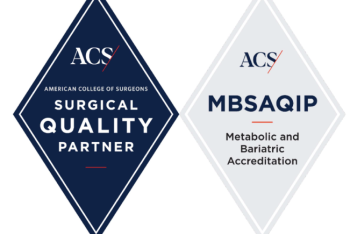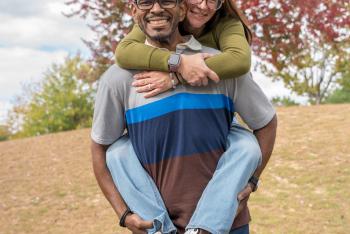Inspira Medical Centers Mullica Hill and Vineland reaccredited as Comprehensive Centers
Read More
When traditional weight loss methods have not been successful, Single Anastomosis Duodeno-Ileal Bypass Surgery may be a viable option. This innovative procedure offers a minimally invasive approach to significantly aid in weight loss and improve metabolic health.
Inspira offers minimally invasive gastric bypass surgery to help you reach your wellness goals.
Single anastomosis duodeno-ileal bypass (SADI) surgery, also known as Loop Duodenal Switch, is an advanced bariatric procedure designed to promote significant weight loss and enhance metabolic health. This innovative approach combines elements of sleeve gastrectomy and intestinal bypass, providing patients with a comprehensive solution when traditional weight loss methods have proven ineffective.
At Inspira, we use the most up-to-date minimally invasive robotic surgery techniques, ensuring patients experience faster recovery times, less postoperative pain and a lower risk of complications. Our commitment to leveraging cutting-edge technology allows us to deliver optimal outcomes and support our patients' journeys toward healthier lives.
SADI surgery begins with removing a significant portion of the stomach, usually around 80 percent, to form a tube-like sleeve that restricts food intake. Then, we reconfigure the small intestine. The duodenum, which is the first part of the small intestine, is separated and then reattached to a lower section of the intestine, which shortens the digestive tract. This alteration not only reduces the amount of food the stomach can hold but also decreases the overall surface area available for calorie absorption, leading to significant weight loss and improvements in obesity-related health conditions.
To qualify for SADI surgery, you must attend at least one information session and meet with a bariatric specialist to determine your eligibility. You may be a candidate if you:
If you receive clearance from the multidisciplinary bariatric team, your procedure will be scheduled. This minimally invasive procedure takes several hours to complete, and you may stay in the hospital for two to five days. After the procedure, your doctor, dietitian and support team will work with you to fine-tune your diet and exercise routine. Because SADI surgery affects calorie absorption, it can also reduce the absorption of essential vitamins, minerals and other essential nutrients. Your physician may recommend incorporating daily multivitamins and other supplements into your diet.
When considering weight loss surgery, it's important to focus on your individual health needs. SADI surgery often leads to greater and more sustained weight loss and can improve conditions like type 2 diabetes, but it comes with a higher risk of nutritional deficiencies and requires strict postsurgical care. Conversely, sleeve gastrectomy is simpler, with fewer complications and less nutritional demand, though it may not achieve the same weight loss or metabolic benefits. Consulting with your bariatric team is crucial to determine which option best aligns with your unique circumstances and long-term goals.
The long-term results of SADI surgery vary depending on the individual. Patients typically achieve significant weight loss, losing 60 to 80 percent of their excess weight within the first two years. Many also see improvements in related health conditions like type 2 diabetes and hypertension, leading to a better quality of life. Successful outcomes depend on commitment to lifestyle changes, including a healthy diet and regular exercise.
Once cleared for SADI surgery, it is crucial to follow preoperative guidelines provided by your surgical team, which may include dietary changes to promote weight loss and improve liver health. You might be advised to adopt a high-protein, low-carbohydrate diet in the weeks leading up to the surgery. It’s also essential to stop smoking and limit alcohol consumption to enhance recovery. Additionally, arrange for a support system to help with transportation and postoperative care, as you will have restricted activity during your initial recovery period.

Inspira Medical Centers Mullica Hill and Vineland reaccredited as Comprehensive Centers
Read More
GLP-1 medications help with weight management and blood sugar control, but they can also slow...
Read More
Dr. Bashian performed surgery on Marcus in October 2024. His wife is also a patient of Dr. Bashian...
Read More